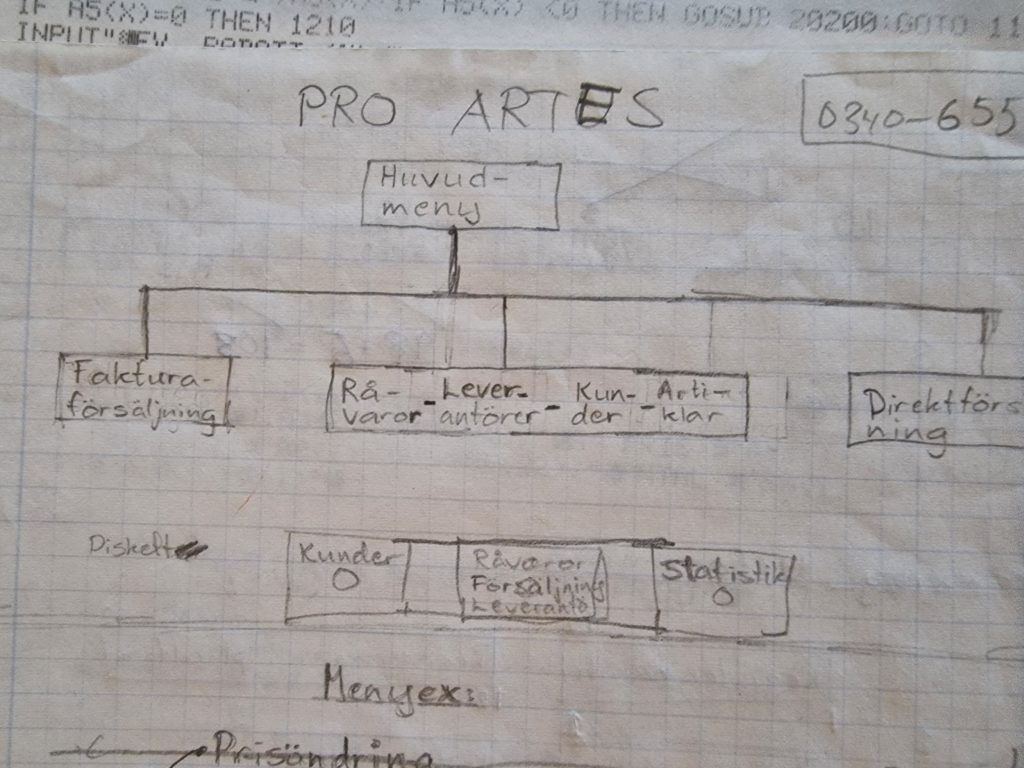I’ve started a new challenge, giving you a Daily Marketing Tip! You can follow me on YouTube or on Instagram! Please enjoy 😀
Category: English
Think only outside the box to be employable!

A close friend recently informed me that British Intelligence Agencies exclusively seek candidates with diagnoses. This implies that individuals considered “normal” are no longer of interest. A development coming as a natural consequence of Machine Learning Intelligence or commonly known as AI.
Forget about symposiums, conferences, or scheduled creative meetings aimed at acquiring knowledge, as these traditional methods merely disseminate information from one individual to many in various formats. The key to acquiring genuine knowledge lies in engaging with individuals who generate original thoughts. Typically, these individuals do not attract attention in large groups. Therefore, it is imperative to reconsider organizational structures altogether.
For decades, societies have categorized unique individuals with diagnoses such as “ADHD,” “ADD,” or “AUTISM,” prompting them to undergo medication or therapy in an attempt to conform to societal norms. However, for societies to progress, it is crucial to recognize that only the same “branded” individuals can drive further development. If you’re not diagnosed or feel you should be, it is time to nurture your uniqueness in order to get one!
My advice to you in 2024; focus on your personal interests, aspirations, and inner thoughts to realize your true self because everything else is becoming outdated..
Facebook at IMC Vancouver

During the years 2000 to 2010 I arranged 30 international events discussing every aspect of our Industry. Let’s start revisit some of these events and speakers to see if we can learn from history. First speaker out; Facebook from the year 2009!
Join the Python Community!

Python is a fascinating language. It’s a programming language, yes, but it’s also a language that is gaining traction outside the “traditional” programming community.
Yesterday I had the pleasure of attending a Python meetup in Stockholm. The topics included;
- Behind the Scenes of tox: The Journey of Rewriting a Python Tool with Over 10 Million Monthly Downloads: Jürgen Gmach
- How to make a game if you have 8 LEDs and a joystick: Elisha Damsker (in picture)
As always hosted by the wonderful Kushal Das at Sunet, Tulegatan 11.
The beauty of this Meetup group is that it requires no previous knowledge of Python in order to get value from the meetings. Kushal is a very open minded host that manages to get us feeling very comfortable together even though everyone has different skill sets. Of course you need to be interested in IT & Programming but that’s it, all questions are considered to be good questions as long as you’re engaged in the topic at hand.
The Python community is part of the Open Source community. As such, much depends on volunteers in order for it to work. Jürgen Gmach has a day job at the company that develops Ubuntu, a Linux distribution, and committs free time to maintain the popular Tox software.
Elisha Damsker told us a great story on how to easily combine a joystick, a Raspberry Pi equivalent computer as well as 8 LED-lamps into a functioning game.
The Python community is part of the Open Source community. As such, much depends on volunteers in order for it to work. Jürgen Gmach has a day job at the company that develops Ubuntu, a Linux distribution, and commits free time to maintain the popular Tox software.
So join a Meetup group, engage in the community, and maybe I see you there!
My failures as analyst

7 years ago I re-started my consulting career. I had a mission to help companies “choose right” when it came to IT/Web/Computers.
It’s due time to evaluate myself:
- I succeeded in building up a consulting company in the respect that I’ve earned enough money to pay me a decent salary.
- I’ve had gigs that definitely are in my industry as the primary source of revenue so that is also positive.
- Have I though succeeded in my main mission, to help companies “choose the right” path in decisions regarding IT/Web/Computers? In some cases Yes, in most cases the answer is No.
To give a little better understanding of my failures, I give you an example. I managed to sell my services as an analyst to a mid-sized company (550 employees). The task was to give my thoughts about the company’s online presence including its online marketing. However, it turned out that my verdict didn’t suit the company’s IT-department, so the IT-department managed to turn down my recommendations.
In those analyst cases I’ve managed to succeed its been in smaller companies when no IT-department was there to stop me.
My failure as analyst was to understand that changing a company’s IT/Web/Computer environment is like ripping apart its body & soul. A company’s IT-environment is so embedded in a company’s DNA that to radically change it – you need to replace the CTO which an analyst rarely or never manages to do.
In hindsight I was naive in my thinking back in the year 2016. However, I’m not up on my mission to help companies choose the right IT-path, but I need to do it from another angle. I think I need to offer a clear path to success in order to get bigger clients instead of analyzing their current IT-environment.
Until i have this clear path, I’ll stop giving IT-advice, so the only advice I give you today; have a great summer🌞!


Graph Technology kills Relationships

Thursday the 16th of March Neo4j hosted Graphsummit in Stockholm. I fortunately attended this event in order to learn more about the company as well as its technology.
There were about 100 of us in the audience that learned from companies such as Försäkringskassan & Volvo how graphs are used to revolutionize different industries.
Graphs are an ancient idea of combining different points of interest into a map. The easiest graph representation for me is that classical crime scene investigation by a detective trying to map out all possible suspects;

I learned that Google’s ranking algorithm is based on graph technology. The more important a page you have, the more relationships it has and the higher it becomes in Google’s ranking.
Neo4j is based on a Swedish invention to build databases in a completely different way than it traditionally has. Instead of putting data into cells that are part of tables it’s put into nodes that have relationships to other nodes. The user interface is graphic so it’s easy to change these relationships at any given moment.
Graph Technology “kills” relationships is a title to attract your attention. However, as I learned throughout the day by practitioners at for example Scania they see graphs as a complement to traditional relational databases. There is also room for nosql databases in a large technology stack because of its benefits with unstructured data.
At the end of the day I got to practice Neo4j using a dataset of European railway stations. By applying this dataset to a sandbox in Neo4j we could eventually create a beautiful dashboard in their recently launched application called NeoDash. Now, we could easily find the quickest routes from one station to another in Europe using graph technology.
I talked to the solution architect Marco De Luca after the conference in which he told me that from dataset to a functional solution in Neo4j it took him two working days to program. The most time consuming aspect was to get the dataset into a functional pattern.
If you haven’t already started to learn about Graphs, it’s due time for you to start!
My best (and worst) decision

At the age of 14 I started programming. It was the best decision of my life. At the age of 21, after creating one of Sweden’s first programs for running a business, I stopped.
Until today, I’ve had my doubts about the decision to stop programming. I know exactly the reason why I stopped at the time. I saw myself staring into a terminal for the rest of my life and I dreaded it.
So I went to Business School, had the time of my life, and thought that to stop programming had been a blessing. I became a much more sociable person, learned about becoming a more emotionally intelligent person (at least I hope so), and met so many interesting people. My past didn’t matter, because as an adult business had become my passion, so I should make good money in my career.
To give a bit more context to my rationality about quitting programming it hardly existed any job opportunities in the beginning of the 1990’s. Computers that could run any serious programs were very expensive so the small community that needed programmers worked only for really large companies or the government.
Today, and for the past 25 years, the need for programmers has just exploded. Business people are always in demand but in relation to the number of programmers needed I made the worst career choice possible. If I had continued my programming career the last thing I would have thought about was potential shortages of jobs.
So, why am I writing this blog post now? Well, it turns out that I still love programming. This past weekend I’ve started to pick up Python.
Guess what, my old programming skills are still there.
I don’t know anything about the future, however, one thing has become clear; I need programming in my life!